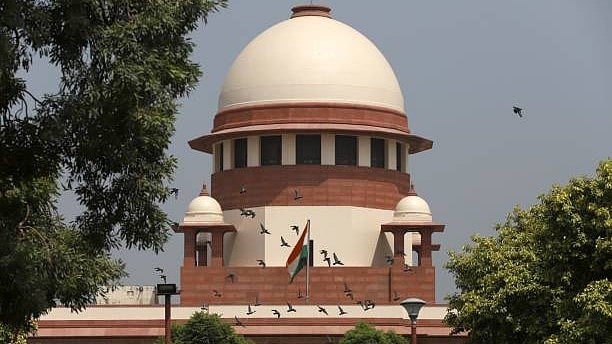
Supreme Court
Credit: iStock Photo
New Delhi: The Supreme Court on Monday set aside the Kerala High Court's order of December 11, 2024, cancelling bail granted to five alleged RSS members in a case related to murder of SDPI's state secretary K S Shan.
A bench of Justices Dipankar Datta and Augustine George Masih noted the accused appellants had remained on bail for two years and they have not been involved in any similar or other offence after the relief. There were 141 witnesses and the trial would take time to conclude, the court said.
"We prefer to lean in favour of liberty rather than its curtailment,'' the bench said, emphasising the golden rule of bail jurisprudence propounded by Justice V R Krishna Iyer, of ‘bail being the rule and jail an exception’ cannot be ignored.
The court pointed out the cancellation of bail is distinct from revocation of an order granting bail.
"Bail may be cancelled when the accused violates any of the conditions imposed. On the other hand, an order granting bail can be revoked if such an order is found to be perverse or illegal," it said.
In the case, out of the 10 accused granted bail by the trial court in December, 2022 by various orders, the High Court revoked bail of five appellants Abhimanue, Athul, Sanand, Vishnu and Dhaneesh for their alleged overt act in the murder on December 18, 2021 due to political enmity.
The Kerala government contended one of the appellant and another co-accused were involved in an attack on a person after grant of the bail. It also cited criminal antecedents of the appellants in a status report.
The court, however, pointed out, the records indicated that the complainant filed an affidavit before the High Court denying appellant Vishnu’s involvement.
"Suffice it to record on perusal of the statement that there is much more than what meets the eyes. We are not prepared to accept the contention that the FIR affords ground for cancellation of bail granted to Vishnu,'' the bench said.
With regard to the status report, the bench said, such antecedents by themselves cannot constitute a ground for denial of bail, while relying upon the decision of a coordinate bench in Ayub Khan Vs State of Rajasthan (2024).
"Notwithstanding the gravity of the offences, the conflicting interests of individual liberty on the one hand and the victim’s rights as well as concerns for community safety on the other could have been better balanced bearing in mind that the appellants had suffered incarceration for nearly a year and thereafter had been on bail for almost two years before the orders granting bail were revoked,'' the bench said.
In the case, the court noted the High Court revoked the orders granting bail, saying the Sessions court kept only two considerations in mind: period of custody and ‘no opposition from the prosecution’, without a discussion of the other factors in detail.
In such circumstances, the bench said, it would have been just and proper for the High Court to direct the Sessions court to consider all the relevant factors and decide afresh the application of the appellants for bail.
The bench also said the likelihood of the accused influencing the witnesses or tampering with the evidence and ensuring smooth progress of the trial could have been taken care of by imposing stringent conditions over and above those which were imposed while granting bail.
The court held, "Taking back the appellants in custody for no better reason than that the Sessions court should not have been swayed by omission of the public prosecutor to raise any objection to grant of bail should not operate to the appellants’ prejudice, more so when two years have passed in the interregnum.''
In its judgment, the court directed the appellants not to tamper with prosecution evidence and influence of intimidate the witnesses, or enter the limits of district Alappuzha, except when their presence is required for the purposes of trial.
The court also ordered the appellants to inform the trial court of their respective address where they propose to stay during such time condition and mark their attendance in a police station on every alternate date.
